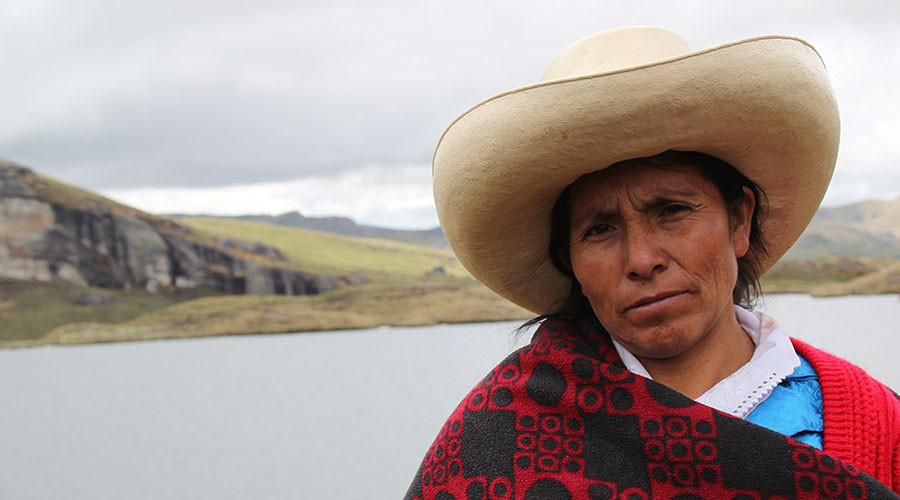At the forefront of local resistance to the new mine, which was intended to replace the nearly-depleted Yanacocha gold mine nearby, is Máxima Acuña de Chaupe, a 47-year-old grandmother who lives off a plot of farmland in Peru’s northern Cajamarca region that would have been used by Newmont to drain a nearby lake to collect mining byproducts.
Acuña has been publicly opposed to the mine since it was proposed in 2010, steadfastly refusing to sell her land despite multiple court battles, alleged physical assaults, and having her family’s crops on contested land destroyed. She also says her family has faced at least three violent eviction attempts by the mining company, which were assisted by private security forces and the Peruvian government.
For her resilience, she was granted the 2016 Goldman Environmental Prize, which recognizes “individuals for sustained and significant efforts to protect and enhance the natural environment, often at great personal risk.”

Máxima Acuña. © goldmanprize.org
“The prize represents an important message of environmental sustainability and serves as a clear wake-up call to the state, businesses, and citizens to establish democratic mechanisms of dialogue and understanding,” Peruvian government ombudsman Eduardo Vega Luna said in a statement.
The Goldman Environmental Prize notes on its website that Acuña’s situation is not an isolated incident.
“With promises of jobs and economic prosperity, the Peruvian government awarded mining licenses across the country. Despite these promises, rural campesinos, who were rarely consulted in the development of mining projects, largely continue to live in poverty. In many communities, mining waste has polluted the local waterways, affecting local people’s drinking water and irrigation needs,”
the website reads.
The Colorado-based corporation announced the decision to abandon its construction plans for the Conga mine in a filing with the US Securities and Exchange commission, adding that it “did not anticipate being able to develop Conga for the foreseeable future.”
While local resistance to the planned open-pit mine is recognized as an important factor in scuttling the project, the company says that the decision was actually made for a number of reasons.
“At the end of the day, our decision to reclassify Conga’s reserves as resources was a business decision triggered by certain operating and construction permits expiring at the end of 2015, uncertain prospects for future development, and permitting and market conditions,”
the company told Mining.com.
However, credit also goes to non-governmental organizations and other locals that campaigned against the mine. Camajarca’s Governor, Gregorio Santos, supported the activists and after violent protests led the Peruvian government to declare a state of emergency, construction was halted in November of 2011. In addition, a crowdfunding campaign in late 2015 raised money to help Acuña buy cows to make ends meet.
Now that she has secured her victory, Acuña said in a statement that she has just one more wish: “I want to return to the peaceful life I had on my land with my family for almost 20 years.”